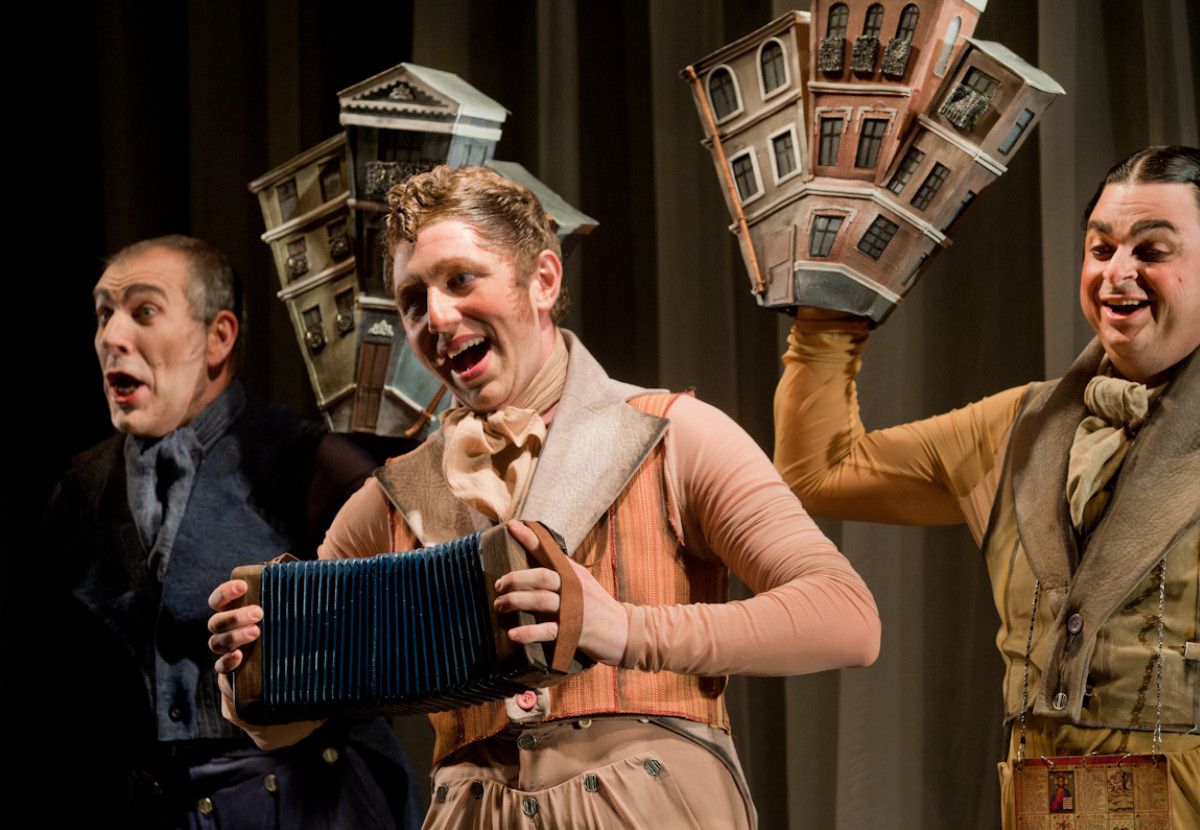
Clothes make the man, or so Mark Twain is reputed to have astutely observed. One’s first impression of a person forms an opinion and influences one’s attitude, informed by the symbolism of clothing and culture’s unwritten (although these days one can often find them elucidated online, there is no real substitute for being bien élevé – yes, precisely, if you have to ask what it means, then, sadly, you are not) codes of dress. Even in these days of sartorial anarchy, whether hipster or homeless, insider or wanna-be, our clothes signal our status and decree acceptance or rejection.
The symbolic aspect of clothing plays such an important role in culture and society that one is in danger of forgetting its role as a form of protection from the elements. Nikolai Gogol’s The Overcoat (1842) encompasses the symbolic and existential aspects of the garment, with perceptive social critique in a comic, poignant, timeless tale. The Khan production of The Overcoat, adapted by Shahar Pinkas and directed by Shir Goldberg, is a vivid and moving expression of Gogol’s tale.
An insignificant man in a lowly clerical position, Akaky Akakievitch Bashmatchkin (I don’t think you can say the name out loud without smiling) has a boring job as a copyist, is ridiculed by his co-workers, and with an old, tattered coat whose fabric has worn down to nothing, must contend with a mighty foe: the St. Petersburg winter.
Pinkas and Goldberg have collaborated on literary adaptations to the stage (S. Y. Agnon’s Tehila at the Khan and Bruno Shultz’s My Father is Not a Bird at the 2011 Israel Festival), with a picturesque visual style that suits Gogol’s work with its broad range from the concrete to the symbolic and fantastic. Using costume, set and movement to create character and tell a story, the production evokes the desperation of poverty and the nuance of social hierarchy. Yet having seen previous Pinkas-Goldberg collaborations there begins to be something too familiar, somewhat diminishing the effect. The distinction between a signature style and mannerism is elusive, yet crucial to maintain.

Yoav Hyman elicits one’s empathy from the start in his portrayal of the earnest, timid, Bashmatchkin, taken advantage of at every turn by everyone he meets, who only wishes to do his work and make it through the winter. One of the striking aspects in this production is the extent to which the wind and cold become characters in the play, with several interludes of Bashmatchkin struggling against the elements (excellent choreography by Sharon Gal). It’s beautiful to watch, and conveys the enormity of all that Bashmatchkin is up against.
The hapless Bashmatchkin is steadfast in his pursuit of the dream: to have a warm winter coat with no holes. When after much adventure he finally has a new overcoat, his life is utterly transformed, and everyone – from his landlady to his co-workers, regards him differently, and perhaps he views himself in a different manner as well, as someone who deserves to be treated if not with respect, then at least, fairly, with justice.
Clothes do make the man in this play, yet it is as much an inquiry into what breaks a man, a pause for thought, as one of the clerks who mocks Bashmatchkin reflects, on “the cruelty that hides within us.”
The Overcoat by Nikolai Vassilievich Gogol
Adaptation: Shahar Pinkas; Director: Shir Goldberg; Set Design: Shani Tur; Costume Design: Polina Adamov; Music: Daniel Salomon; Choreography: Sharon Gal; Lighting Design: Roni Cohen; Sculptures: Amira Pinkas; Dialogue Coach: Assi Eshed; Voice Coach: Dorit Atzmon; Cast: Yoav Hyman, David Kigler, Yael Toker, David Ben Zeev, Eddy Alterman.





